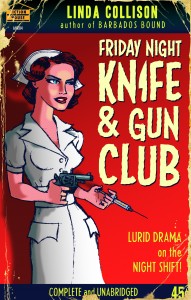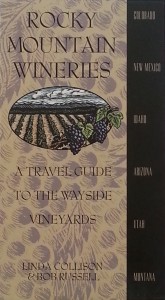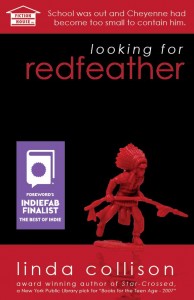 In this golden age of indie-publishing some writers still want to go the traditional route, which means finding a literary agent to represent your brainchild. It’s all rather backward in my opinion; I mean, why aren’t agents researching writers and querying us? But that ain’t happening. And so we ever-hopeful writers, like proud and babbling parents of slightly gifted children continue to send letters to perfect strangers. “Sir or Madame won’t you read my book…”
In this golden age of indie-publishing some writers still want to go the traditional route, which means finding a literary agent to represent your brainchild. It’s all rather backward in my opinion; I mean, why aren’t agents researching writers and querying us? But that ain’t happening. And so we ever-hopeful writers, like proud and babbling parents of slightly gifted children continue to send letters to perfect strangers. “Sir or Madame won’t you read my book…”
Agents claim (and sometimes complain) to receive hundreds, thousands, or bazillions of these letters a week. Why do we writers keep pestering them? To read some of their tweets, we are pathetic risable bores. Yet agents make their living representing writers — not heaping scorn upon us. They’re all looking to find the Next Big Thing.
Agents will succumb to a well-targeted query but you’ll need a heat-seeking missile to escape the trash can’s tractor beam. Your query has to be sharp and shining to hit the mark. It has to make them want to read your manuscript — want it enough to actually hit “reply” and ask you to send it. Now you’ve got your foot in the door. It’s only the first step but it’s the first step.
I’m pretty good at query letters. I started writing them decades ago, when I was freelancing for magazines. My first published book, Rocky Mountain Wineries; a travel guide to the wayside vineyards (Pruett Publishing, 1994) was the result of a Hail Mary query. My queries aren’t always successful but often enough they have resulted in an agent or editor asking to see more. Many times they resulted in a published article, twice they won me an agent, and twice they won me a book contract with a small press. I figure I’m on an uphill roll. 
Whether I’m pitching a novel, a nonfiction book or an article my format is basically the same. Three or four paragraphs, tops. Here’s my advice:
Keep it short. One page is perfect. Two pages if you’re a Nobel Prize winner or past POTUS.
Personalize! I target each letter to a particular agent for a specific reason, based on what they say they’re looking for on their website, blog, an interview or at a writers conference. I keep a master list of who I’ve queried, the date sent, and the response — if any. These days most agents don’t reply to unsolicited queries unless they’re interested.
Queries can be sent out in quantity, but an outstanding query will generate results, so be prepared for several agents to request “exclusive” readings of full manuscripts. I had this happen recently and was so pumped up by the thought of two agents wanting me, maybe even fighting over me, that I basked in the glow of their desire for a couple of days before responding to either one of them. When I did email back I explained truthfully that another agent had also requested a full manuscript. Both agents wrote back that they still wanted to read the full manuscript, but only if I didn’t shop it out to anyone else while they were considering it.
Ultimately both agents passed on the project. “Strong voice, well-written, just didn’t fall in love with it, blah, blah, blah.” Still, my outstanding query letter got me past the threshold.
In the first paragraph I try to hook them with a concept statement about my story — and with a sentence that shows I have an idea of what they’re looking for or other successful books they’ve represented. This is a bit of a smooze effort, but can be highly effective if sincere. If I’ve attended a conference at which they were a speaker, I mention that. I try to make a meaningful connection. For instance,
Dear _______,
I enjoyed and learned from your comments on the “First Pages” panel at the recent RMC SCBWI autumn conference in Golden, Colorado. I’m querying you about my YA novel “Water Ghosts,” a psychological novel with paranormal and historical elements…
Nothing flashy here but I’ve tried to personally connect with this agent who I know is looking for YA with compelling characters.
The second paragraph is about the project itself. One paragraph in which I capture the heart of the story. Impossible? Yes! The second paragraph of your query may be the hardest one you’ll ever write. Don’t explain your story and don’t try to give a full plot synopsis. Instead, write the back cover teaser for your book. You might end the second paragraph by mentioning books that influenced you. Personally, I refrain from comparing my book to other popular titles but many writers do.
The third paragraph is all about me. A brief bio, germane to this story or project I’m pitching. Here’s where I mention my previous publishing credits and awards. Publishing credits aren’t as important as they sound because many agents today are looking to discover the next “new” writer. If pertinent, I include a sentence or two about what drove me to write this novel or what experience in my life gives me credibility. This deeper connection to your story can be emphasized if you don’t have publishing credits. You exhibit your writing ability by creating a tight, compelling, well-targeted letter that speaks for itself.
End your killer query by thanking the agent or editor for her time. Offer to send the full manuscript and a box of Belgian chocolate to eat while reading. (I’m kidding about the chocolates.) Don’t forget to include your your contact information! Include a website, Facebook, blog and twitter links if you have a big following. You have about 30 seconds to capture this person’s attention and make them want to read more.
Find and follow the directions on the agent’s website for querying. Some only want a query, some want sample chapters and a synopsis along with the query, some don’t want attached files but request sample pages cut and pasted beneath the body of the letter. A few agents don’t want electronic queries at all and some will only accept emailed queries. Some really have no clue what they want.
Save your query letter to use as a template for other agents; no need to reinvent the wheel, just personalize for each. Don’t forget to keep a log or spreadsheet of agents queried.
Ultimately, a query letter is a concise, elegant sales pitch. Don’t get discouraged; refuse to be defeated. Sooner or later you’ll hit your target and bag an agent. Or maybe you’ll decide to publish the damn thing yourself!
